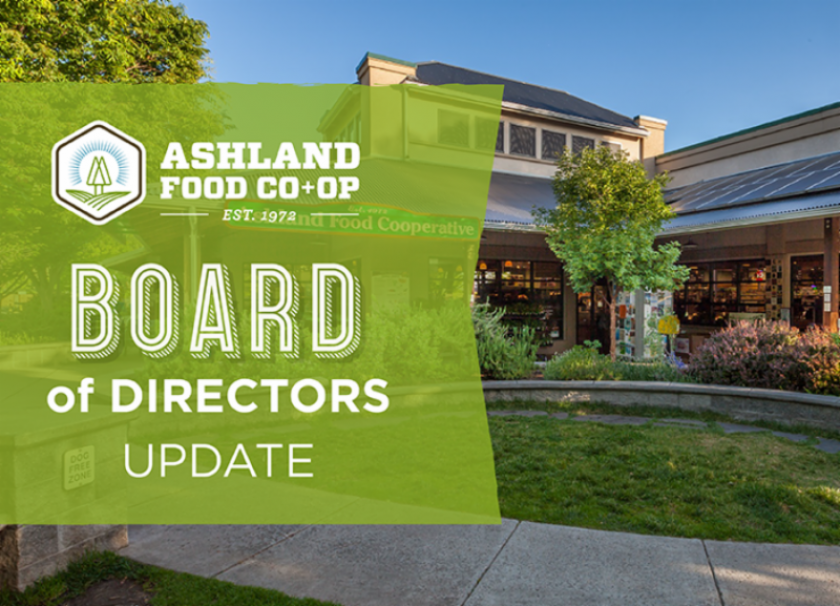
From the Board: Co-ops Look in the Mirror
By Annie Hoy, Board Secretary and Chair of Owner Engagement Committee
Food Co-ops around the nation proudly display signage saying EVERYONE WELCOME. Or they use the slogan, “Anyone can shop. Anyone can join.” But are food co-ops, and other cooperative businesses, walking the walk?
The double calamity of a pandemic and civil unrest has helped cooperatives in every economic sector see inequities more clearly. They have become a central focus of entire conferences, both internationally and in the food co-op sector specifically. Diversity, Equity and Inclusion in relation to the co-op movement is under review and committees have formed in credit unions, housing co-ops, worker co-ops, platform co-ops and of course, food co-ops. It can be uncomfortable work. But getting to liberation is uncomfortable, as many of our brothers and sisters of color have known for centuries.
The co-op movement’s statement of purpose says that co-ops are jointly owned by the people who use their services. There are universal people-centered principles like concern for community, autonomy and independence. Co-ops are democratically controlled, and guided by values like democracy, equality, equity and solidarity, as well as self-help and self-responsibility. But if you graded co-ops on diversity, equity and inclusion, you might find that the movement has an uncomfortable problem.
Jessica Gordon Nembhard, in her keynote address at October’s international Co-op IMPACT conference, began her speech with a mythbusting question: Co-ops can’t be racist, right? She then noted the small number of black, brown and indigenous bodies in the room. She described how co-op development materials never mention the rich history of black or indigenous co-ops across time. She challenged us to recognize the ways we might perpetuate institutional racism, or what we do if we see racist microagressions and exclusion in our co-ops. She urged co-op leaders to rely on Principle 6, Cooperation among Cooperatives, to create a solidarity economy that practices social justice, no matter what sector of the co-op economy you represent.
In the food co-op sector, and at Ashland Food Co-op, we are engaging in conversations about what community means and who is part of that community. Is everybody really welcome? And if not, how can we address that?
More Co-op News
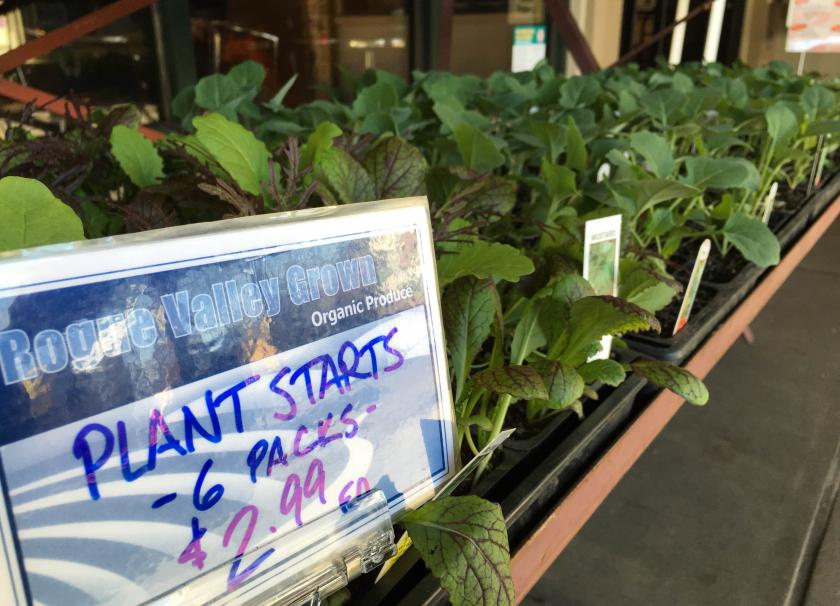
Get Your Garden On
This is one of our favorite times of the year. The sun is out and the days are longer, time to play in the dirt. Our Produce Staff share their favorite seeds and starts to help you get your garden going.
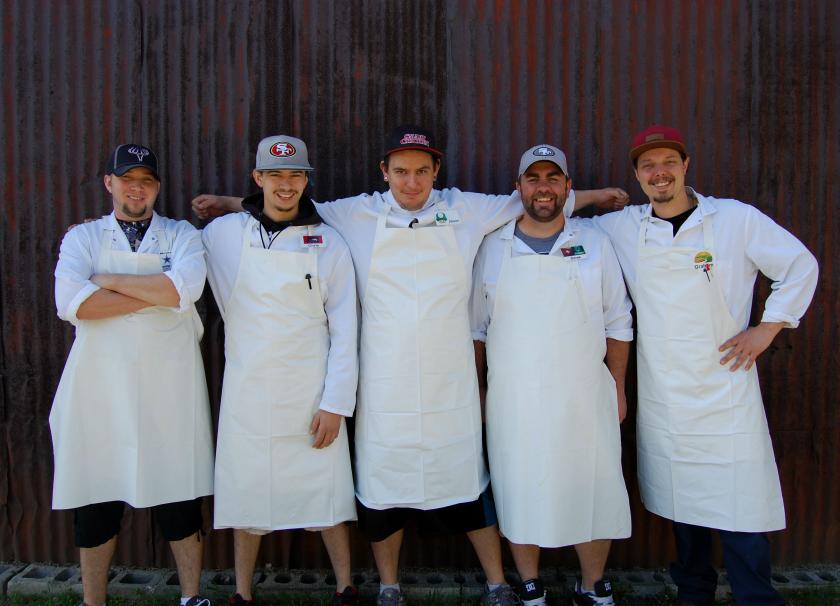
Meet the Meat Department
Welcome back to our Behind the Scenes blog series. So far you’ve meet the dynamic Produce and Deli teams. Next up, the department that is packed with protein, meet the Meat Department.
Did you know?
Rachel's Spring Produce Picks
Rachel Rose, Assistant Produce Manager, shares her spring produce picks.
Strawberries
Most people are surprised to know that early spring are two of the best months out of the year for tasty strawberries. The first batch out of California is usually so sweet and full of flavor that the rest of the year I often shy away from strawberries. They just don’t measure up to the fruit coming out early in the year.

5 Edible Plants to Start in Your Garden Now
Spring is most definitely upon us, and we are lucky enough to live in Southern Oregon where the weather during this time is usually (ahem) co-operative enough to let us get some plants in the ground in between the hail storms and rainbows. There are actually many plants that do quite well in this time of transition, as they prefer the cooler temperatures that we get here this time of year, before the real heat sets in. Here are a few that we have right now at the Co-op, direct from local, organic farms. Plant these in your garden now for best results!
UPDATED Organic Raw Macadamia Nuts Recalled Because of Possible Health Risk
UPDATED 3/17/16
Ashland Food Co-Op of Ashland, Oregon issues the updated press release to clarify that we re-packed and sold Organic Raw Macadamia nuts in random weight bags at our retail store in Oregon only between January 5th, 2016 and February 4th, 2016. We do not have any internet sale or distribute affected product outside Oregon.
Garden of Life Raw Meal Recall
Garden of Life has issued a voluntary recall on all Raw Meal products shipped after August 15, 2015.
Please see the below link to Garden of Life’s blog for all lot numbers that they are recalling, as well as details of the recall.
Let Thy Food Be Thy Medicine
Rachel Rose, Assistant Produce Manager, shares her winter produce picks.
The cells in our bodies are all made using the building blocks that we provide in the food that we eat, the air that we breathe and the water we drink. If we want healthy bodies, feeding ourselves and our families the cleanest healthiest foods is a real good start. We are what we eat!
Burdock root
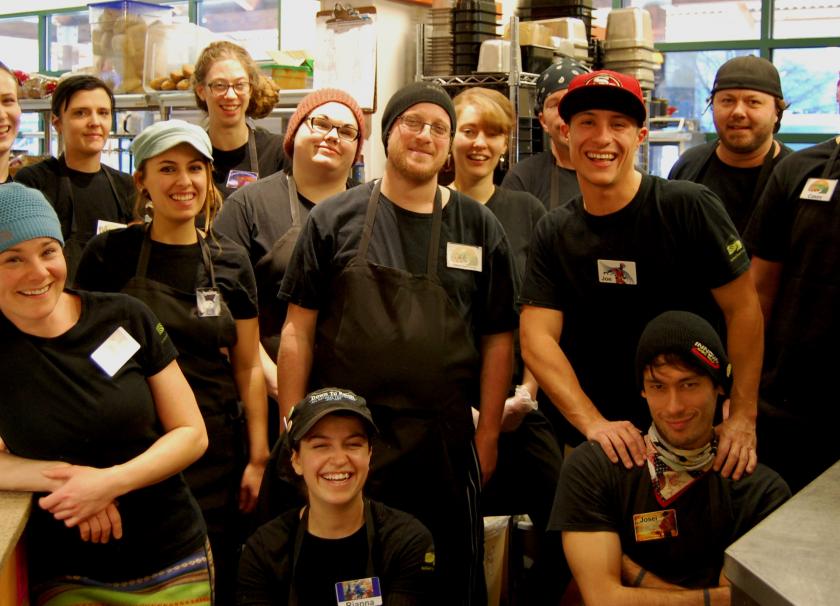
Behind the Scenes: The Deli
Welcome back to our Behind the Scenes blog series. We recently took you into the colorful world of Produce. Now we’d like to introduce you to the department that enters beast mode daily: the Deli.
Did you know?
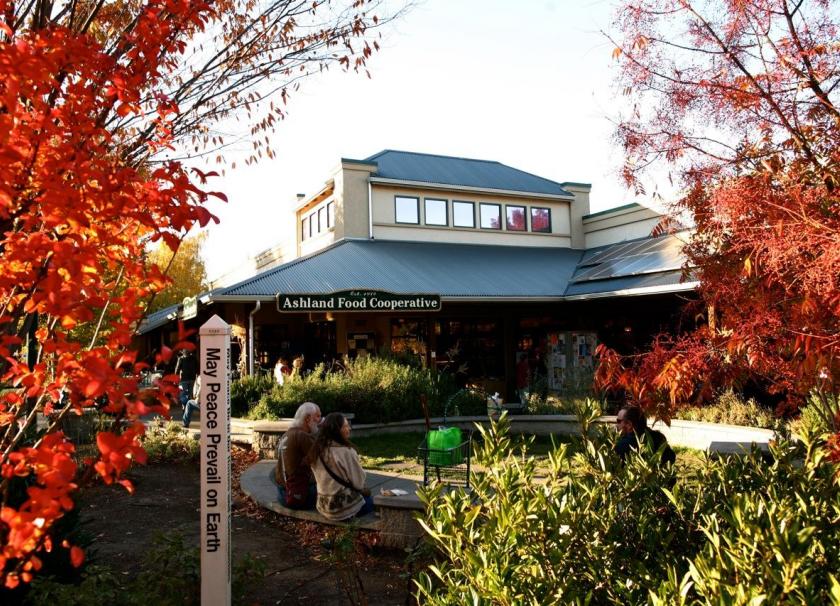
31 Reasons to Visit the Co-op
Happy 2016! It’s a brand new year, new month, new day. No doubt many of you’ve made a variety of resolutions to make this year the best yet. The Co-op can help you succeed. How? Let us tell you. Here are 31 reasons why you should visit the Co-op every day this month to improve your life and your community.
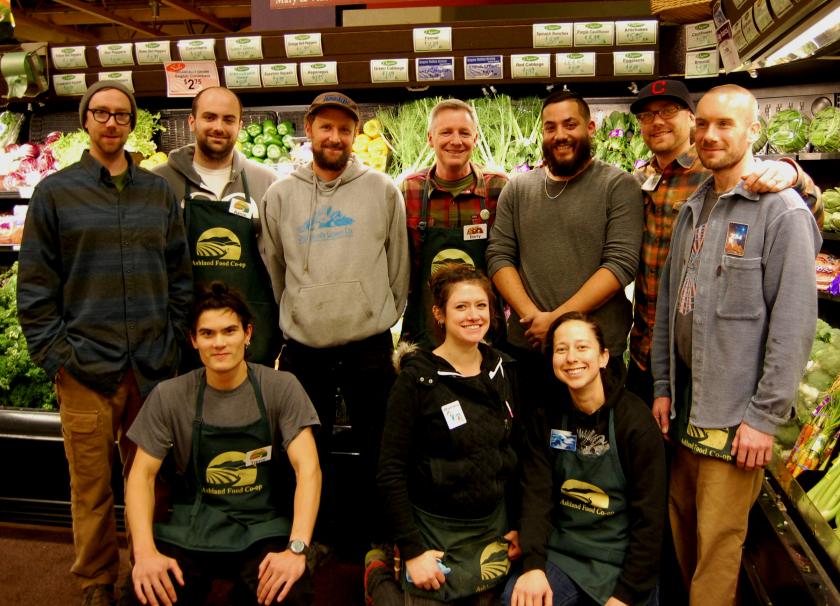
Behind the Scenes: Produce Department
You shop for groceries at the Co-op. For lunch, you often stop at the Deli for a quick meal from the Hot Bar. You meet friends outside on the plaza, give each other long hugs, and catch up on life. After a long week, you swing by for the Friday beer and wine tastings at the Kiosk. But how well do you really know the Co-op?
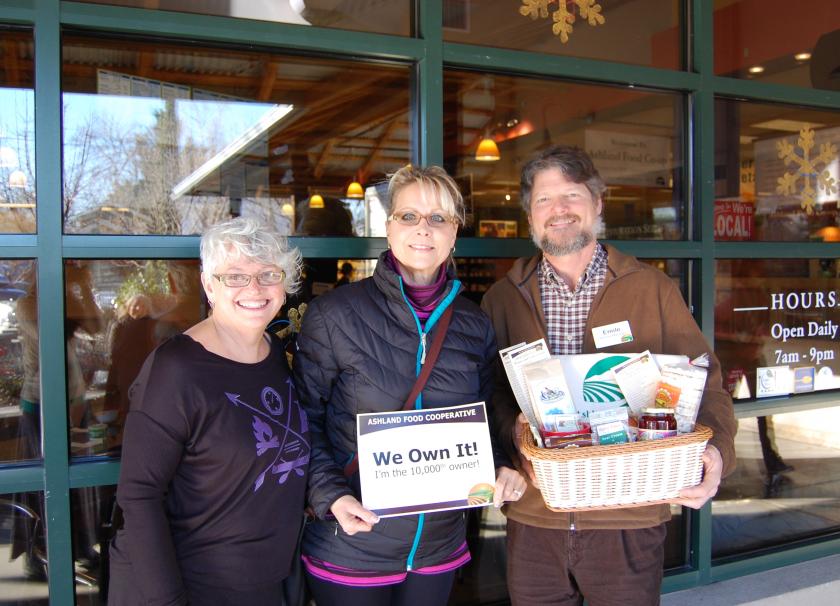
2015: A Year to Remember
Can it really be that time of year again? 2015 was full of so many things for which to be grateful. Here’s a list of some of the highlights.
We celebrated the 10-thousandth person to become a Co-op owner! Co-op ownership is a way to help create a more humane and democratic way to do business locally. A robust cooperative economy is one way to take a stand against corporate misbehavior.
Smart Chicken® Holiday Giving Challenge
The holiday season is upon us. Amidst the shopping frenzies, family gatherings, and parties it can be hard to remember this is also a season of giving. Luckily, you have us and we are making it easy for you to give back.
During the month of November, Co-op shoppers can nourish their own families and help fight hunger in the Rogue Valley.
